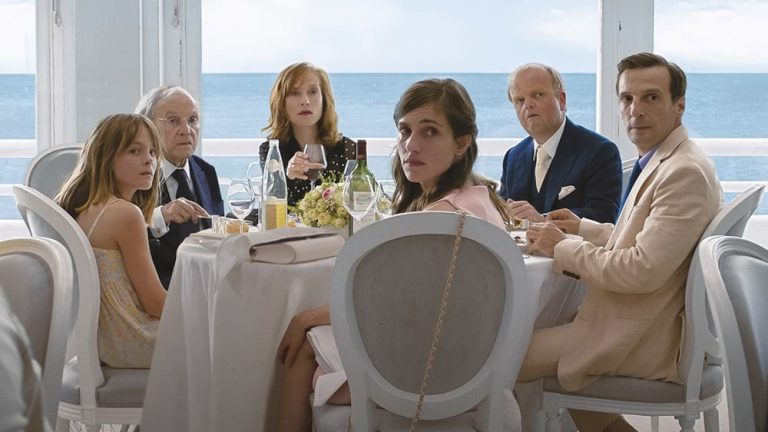Michael Haneke has spent the better part of his career saying very bad things with all the cadence we usually afford to jokes. From Funny Games to Amour, his films have the structure of dark gags, all of them closed with brutal punchlines as likely to inspire whimpers as laughs.
Happy End, his newest, follows this trend, but with a slight difference: for the first time in Haneke’s career, he’s made a film that’s actually funny. Or, at least, as funny as a film about murder, infidelity and malaise can be.
Although Happy End is ostensibly an ensemble family drama – it boasts a stuffed cast of cinematic titans, chiefly Jean-Louis Trintignant as an elderly patriarch losing his mind and the always exceptional Isabelle Huppert as his put-upon daughter – it neatly subverts what one might expect from such a film. This isn’t a movie about people coming together, even though it’s made up of many plot strands that all eventually begin to intertwine. Nor is it about familial secrets, or the acknowledgement of prior evils.
Instead, it is a film that actively ducks away from easy categorisation, lurching about the place like the film’s drunken, disorderly black sheep Pierre (Franz Rogowski).
Happy End’s ‘heroes’ never address what makes them unhappy, or even their connections with one another – they natter away at cross purposes, ignoring and undercutting each other at whim. As a result, the dialogue has a deliciously stilted quality to it: everyone speaks as though hypnotised, or as though they are being fed their lines via a hidden earpiece. Huppert, who has done the icy manipulator thing for Haneke before in The Piano Teacher, excels, but the real MVP is the 12-year-old Fantine Harduin, who plays the potentially psychopathic Eve Laurent with steely reserve.
Despite the film’s subtle incorporation of modern technology (phones, Facebook and YouTube vloggers all make an appearance), the real target of Happy End is not millennials but boomers; the self-indulgent fuckers eating up the planet, hopping into each other’s beds and beating their chests in useless displays of their ever-dwindling power. For this reason, Haneke’s sympathy is reserved for the very old and the very young, with the film’s extraordinary final shot an entire world view compressed into a single, potent image.
It’s awkward, and it’s unpleasant, and audiences will feel guilty every single time they laugh, but Happy End also happens to be a work of vicious intelligence from an all-time great filmmaker whose long-sustained smirk has finally given into peals of cruel laughter.
Love Film & TV?
Get the latest Film & TV news, features, updates and giveaways straight to your inbox Learn more
Happy End was reviewed as part of Sydney Film Festival 2017.

































